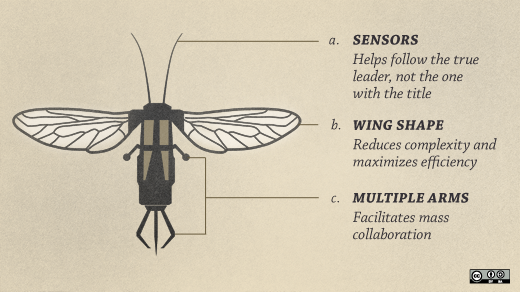Before the PC, computers were devices: custom hardware combined with software specifically written for the machine, and the machines themselves were usually designed for a select few (if not single) purposes. The problem that PCs seemed to address was diversity. Where customers had previously relied on one company to support both hardware and software, the PC clones opened the doors to a brave new world where anyone could build, support, or maintain a computer.
It was a revolution that made computers affordable enough for anyone to own, for any business to adopt, and allowed countless entrepreneurs and skilled technicians to find work for themselves: outside the confines of long established corporate hierarchies. Unfortunately, the open source software revolution took much longer.
Why devices
Though truly open and free alternatives to most proprietary software has existed for years now, the desktop and laptop sectors of computing are still mainly controlled by a select few closed, proprietary software vendors. Luckily, laptops and desktops are not the only computers in existence.
The server market is dominated by open source software, and the bigger an organization is, the more likely it is to use open source. Open source software also powers almost all the world's fastest supercomputers and indeed is the very software of the Internet itself. And now, open source software underpins a vast majority of the world's mobile computers.
The computers of tomorrow are lean and specialized, like a finely tuned Formula One car, but unlike their predecessors, these don't have the hoods welded shut. They are specially designed from the ground up to do one, a few, or many things very well. To retrain the advantages of pre-PC computers. they're stable, tightly integrated machines designed to work for you, with the uniquely new benefits of having open designs from hardware through software.
Why Celeum
This is why I'm launching Celeum, a company that makes devices, not computers. In the same way that a phone is designed first as a phone, which happens to enjoy the benefit of being customizable with software, so too are our devices.
A Domain Server is designed to control your domain—to authenticate users, to store profiles, to keep track of network objects. If your email server crashes you needn't worry about losing domain services that were hosted on the same server to save money (and vice versa). Your file server becomes a cloud server, saving duplication of effort while ensuring that your personal and private data stays that way. Your PC is freed from bloatware, trial software, and ads, while including tons of fully functional software whose proprietary counterparts would cost more alone than the cost of the entire Celeum PC.
Why open
And the open nature of all Celeum devices means they'll never "slow down" with age just to push you to pay for an upgrade. Even so, the software upgrades will always be free as well.
Imagine a world where a specially designed Domain Server is more reliable and costs less than a proprietary operating system license. Where you don't have to trade privacy or control for the advantages of cloud storage and collaboration. And, where getting work done on a computer doesn't mean stepping on to the endless treadmill of planned obsolescence and upgrade fees.
Welcome to the future, the sky's the limit.
To support my project to launch a line of embedded Linux devices, learn more at and contribute to the Celeum Indiegogo crowdfunding page.




Comments are closed.